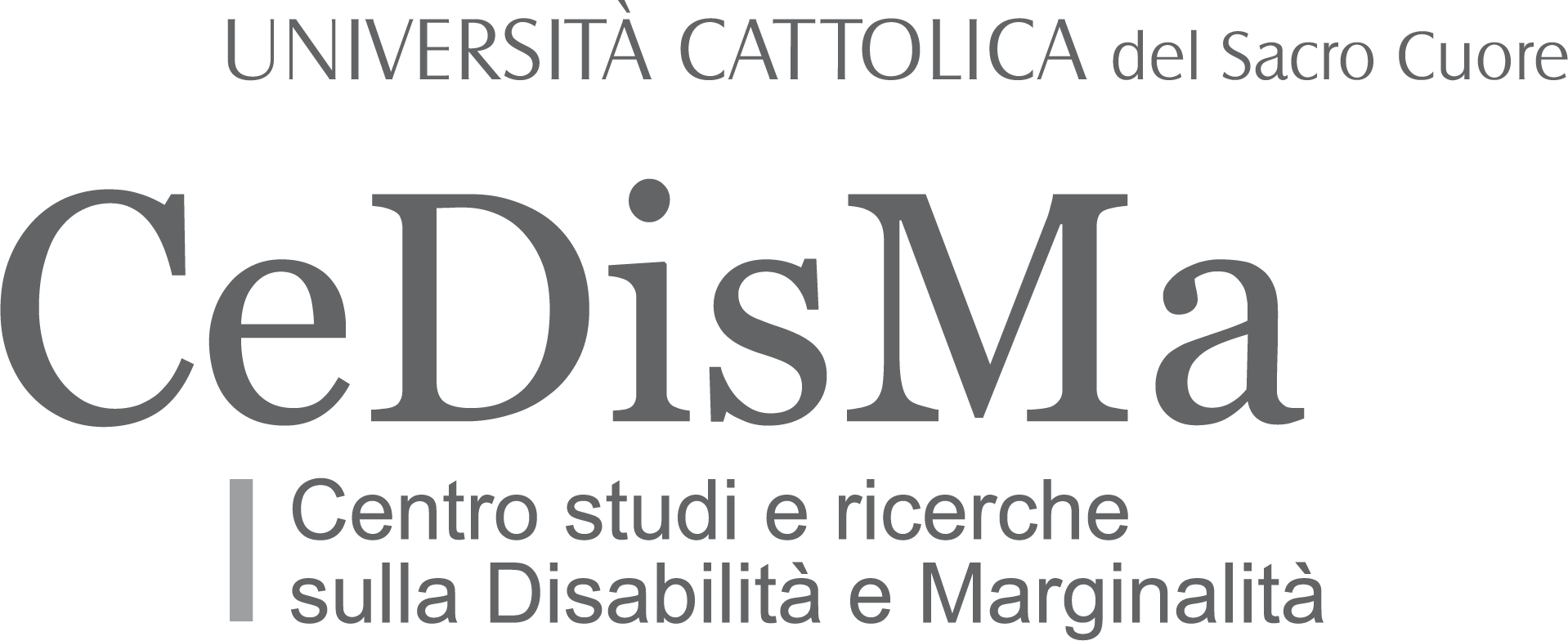Covid-19 has imposed changes on society and individuals. One of the sectors that has had to adapt to it with the greatest speed is the school sector. And in addition to teachers, pupils, particularly the most vulnerable ones, have also been challenged.
The Center for the Study and Research on Disability and Marginality (CeDisMa) of the Università Cattolica del Sacro Cuore, carried out the research “FocuScuola. Inclusione 20.20,” with the aim of exploring the state of the art of inclusive processes upon return to attendance after the first lockdown period.
We sincerely thank the thousands of teachers, educators and school leaders who responded passionately to the survey proposed to them.
The research team was coordinated by Prof. Luigi d’Alonzo, director of CeDisMa, and included Profs. Elena Zanfroni, Silvia Maggiolini, Gianni Zampieri and Roberta Sala.
The main indicator of the seriousness of the epidemiological situation that Italy found itself facing in March, next to the closure of nonessential activities, was certainly the closure of schools of all levels.
In fact, school is an essential activity that the much-talked-about distance learning, however inevitable, can never replace. It is not useful especially for the education of children and young people with disabilities and special educational needs, for whom approach and stimulation provided by specialized professionals in the field of education are essential to preserve the progress achieved.
The CeDisMa – Center for Studies and Research on Disability and Marginality of the Università Cattolica del Sacro Cuore promoted the research “Focus Inclusion 20.20,” in order to understand what approaches were the most functional, in this complex period, to the inclusion of pupils with special educational needs. We talked about it with the Director, Prof. Luigi d’Alonzo, Professor of Special Pedagogy at the Catholic University.
The outbreak of the Covid-19 pandemic has been a bolt from the blue for everyone. What aspects of the lives of people with disabilities has it impacted most dramatically?
“Certainly the greatest impact has been on school-age children and young people living with a condition of disability or disorder, and who have run the real-not certainly “virtual”-risk of being completely excluded by an educational management system that has revealed quite a few limitations.
The same difficulty has been faced by young people and adults, for whom the possibility of attending centers or educational services that play a crucial role in the realization of an authentic life project has disappeared.
Last but not least, the families involved, who have often found themselves to be the only caregivers on whom educational and caregiving tasks and responsibilities have rested.”
A not insignificant educational gap, in short, which teachers have tried to address by working on a variety of areas. “From an initial analysis of the responses to the “Focus inclusion20.20″ research questionnaire,” says Prof. D’Alonzo, “the importance of adequate planning of reception activities emerged, the need to detect possible new emerging needs on the part of children with special educational needs, but also of their peers; or again, the importance of continuing to ensure fundamental goals on the level of inclusion of everyone and each pupil.
The idea of inclusion within the classroom context, moreover, was also underscored by the DPCM of last November 5, which encourages active collaboration on the part of principals, teachers and families to foster “the attendance of the pupil with disabilities, consistent with the IEP, in the context of also involving, where possible, a group of pupils in the class” in order to avoid an even greater feeling of isolation for pupils, who would feel even more lost if they returned to one of the most stimulating places for them but without their peers.
Schools are one of the most dynamic areas of our society, and “the training of teachers, educators and school staff has always played a fundamental role in constantly enriching their skills, useful for responding to the many transformations that this context has experienced”.
In light of a challenge as daunting as the one into which we have been so abruptly catapulted, the debate regarding such a delicate topic and the need for solutions is certainly becoming more pressing: “there is an urgent need to increase special pedagogical skills in teacher training, those that can foster understanding of problems and the satisfaction of the needs of vulnerable learners, in order to arise a serious reflection that, hopefully, also looks to a less immediate future.”





